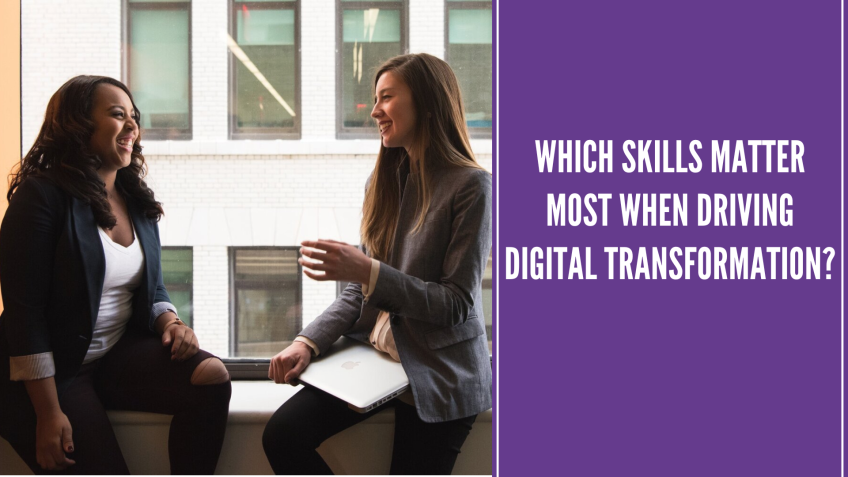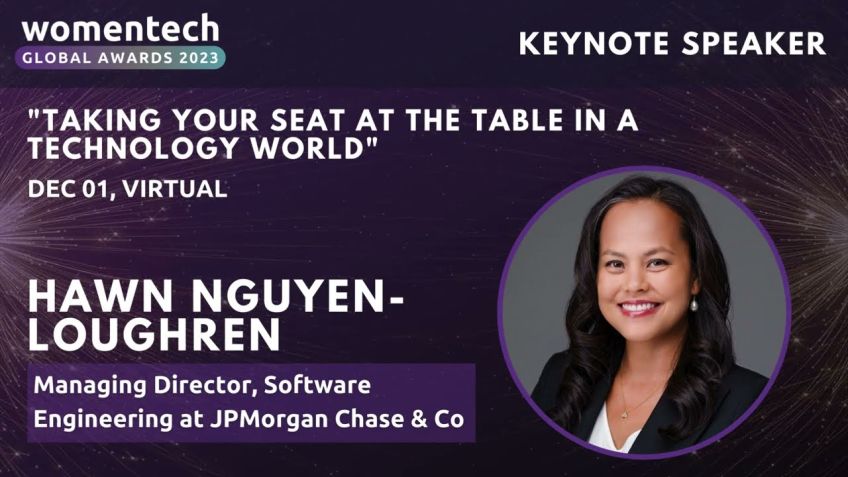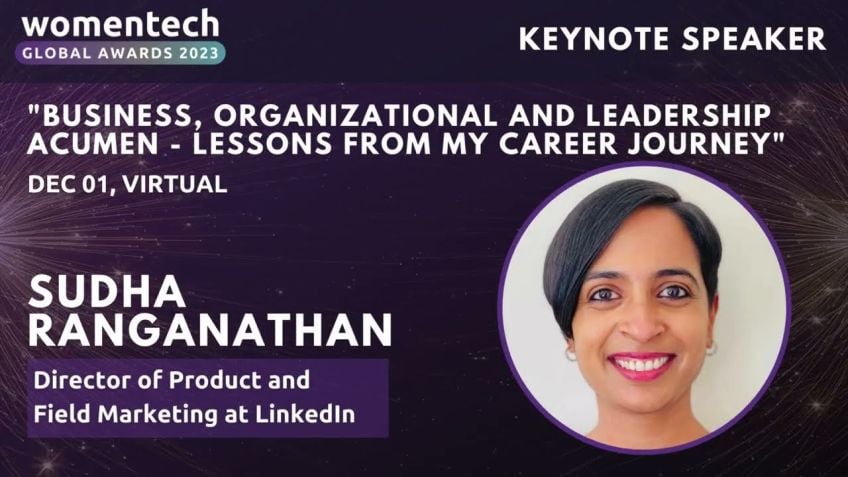A Software Development Journey in Self Confidence by Heather Cronin
Embark on a Software Development Journey: Lessons on Self-Confidence and Growth
Hello everyone! I am Heather Cronin, an Engineering Manager for the Android team at Mahana Therapeutics. Today, I will be sharing with you my journey in software development and how I became the confident professional I am today. Through my experiences, I hope to inspire and guide those who may be at different stages in their careers.
Background: From Humble Beginnings to a Career in Software Development
I grew up in a small rural community in Pennsylvania, raised on a single income by my father. Compared to many, my beginnings might be considered modest, with less access to financial support and technological exposure. Nonetheless, I believe my background played a significant part in shaping my decisions and future achievements.
Despite being first exposed to coding in college, my enduring passion for software has seen me through over a decade in the field, with a focus on building Android applications.
Lessons from Childhood that Shaped my Career Journey
I believe there are a few key lessons from my childhood that greatly influenced my professional life:
- The value of teamwork: Engaging in team sports taught me the importance of group effort and mutual support.
- The power of compassion: My grandmother, a beacon of wisdom and independence, demonstrated that compassion was about genuine care and concern for the welfare of others.
Adopting a Growth Mindset
My father instilled in me the idea that we are capable of more than we think. This encapsulates the concept of a growth mindset. A growth mindset is about believing in your ability to learn and grow. It's about seeing failure as a lesson, embracing challenges, persisting in hard times, and understanding that effort paves the way to mastery.
In contrast, a fixed mindset sees failure as a limit, avoids challenges and hard work, and underestimates the power of effort and perseverance. Thus, adopting a growth mindset is crucial in our careers and personal development.
Examples of a Growth Mindset in a Software Engineering Context
- Addressing failures: If you introduce a bug, the resolution should not be about casting blame or ignoring the issue. Instead, it involves introspection, analysis, and lessons learned for future prevention.
- Handling critical feedback: It's essential to truly listen to feedback, ask questions for clarity, and conduct a self-reflection.
- Overcoming frustration: A tough problem should not prompt resignation but motivation to approach the problem from various angles or consult colleagues when necessary.
Visualizing Your Goals
While a growth mindset handles daily hurdles, visualization aids in mapping out your larger career goals. It involves future forecasting, "seeing" what you want to be, and what inspires you. Practicing visualization can significantly shape your long-term career path.
Embrace Your Journey
The path to success often includes ups and downs. My journey from humble beginnings to my career in software development was undoubtedly marked with challenges. However, I chose to embrace these struggles as part of my journey to grow.
Conclusion: The Journey Continues
No matter how far along you are in your career, remember that it's just the beginning. The lessons you learn along the way will help shape your future. Don't be afraid to reach out, ask questions, and continue to push towards your goals. And remember, your journey is unique and worthwhile, so don't forget to enjoy it along the way.
Feel free to connect with me on LinkedIn or email me if you have any questions or simply wish to share your own software development journey.
Video Transcription
OK. Hello and welcome everybody. Um My name is Heather Cronin. Um And I am a manager of engineering for our Android team here at Mahana Therapeutics. Um So I am gonna be talking to you today about my own software development, journey and self-confidence.Um And I'm gonna start from the very beginning. Uh So from my child childhood on through um my en entire career and um we're gonna talk about how the things that I learned as a child from my family and community that I grew up in and how that helped shape who I am a confident woman that I am today, pretty confident anyways.
Um And I'm gonna talk about how that influenced um just future decisions and how some of these things um might help you along in your career. Um So a little bit about myself. Um uh like I said, my name is Heather. I um I have been writing um a software for over 10 years now. I have my background is in computer science. Um and my focus is building android applications. Um So, uh a little bit about my childhood, um I grew up in a small rural community, um, in Pennsylvania, in the, in the United States. Um, it was a blue collar community was raised, um, on a single income, um, from, from my father. Um, so early on, um, I did not really have the same level of financial support, support that a lot of, uh, a lot of Americans can get today. Um, and, you know, I think that kind of shaped a lot of decisions later on. Um, and I wasn't even introduced to coding until I got to college. Um, or really computers that much if you can believe it. Um So, uh I'm only 33 so it might sound a little crazy. Um, but just a small, a small town. Um But what my family could not give me, um, to set me, give me maybe a little bit of a head start, um, financially, uh they paid in dividends in all of the aspects that they taught me early on.
Um, we're gonna talk about those today and how those, um, again, influence my, uh decisions later on in my career. Um I know, um, before we jump in the next one, I do wanna preface that, you know, there, I know that there are probably some that even had even more humble beginnings than, than what I had. Um, you know, uh But I think that it's, it's helpful to see where I started, um, to see the leaps and bounds that I've made since then. Um So a little bit about myself. Uh my humble beginnings um circled here is little me. Um And um and so, uh just, you know, I was raised by two parents. I have two other siblings. Um And uh surprisingly enough, um they raised us all very happy little uh a little Children to adults on, you know, a small, a small income from, you know, blue collar workers. So, um you know, it's uh they, they taught me a lot of things. Um and um these are some of the lovely people that uh that raised me.
Uh So the first thing I want to talk about is um that they, that I learned early on in my childhood was um participating in team sports if you could tell from this uh this picture, uh hyper focus is one of um one of the best, I guess assets that I have been developed it very early on.
Um And so I was almost always in a team sport of some sort. Um But I really think that this is what taught me early on um strong motivation. Um But also that the belief that you're stronger in a group than you are by yourself. Um So the second thing that they taught me um was, was compassion. Um I like this quote a lot because to me, it kind of gets to the root that compassion is not about having all of the answers. Um But truly caring um about those around you to find those answers. Um And the person from my childhood that taught me this was my grandmother. Uh she was such a beacon of wisdom and um she was, she was independent, she was opinionated. Um But most importantly, she was compassionate and, and she, and she taught me that um she stood up when it was necessary. Um She cared for those when they, they needed it the most. Um But she also spoke her mind. Um And so I didn't think as a child that I could ever encompass all of these things, but as I've grown that has stuck with me. Um And, and I just think there's so many valuable lessons that I learned from her that I could probably talk for eons about her. Um Definitely a role model from, from my childhood, for sure.
Um Anybody in the chat, did you have another woman in your life that, that influenced you in, in such a way, feel free to feel free to put in the chat? Love to here. Uh So the next, the next slide and this is gonna be what the focus of uh my talk is gonna be about today. Uh So this is a picture of my, my father and I, um and um I think mindset, he taught me um really, really early on. Um He was very, very passionate about getting me involved in sports. Um um but not only that, but he challenged me every step of the way. Um And so let's share a little story about this and, and how this has drive my mindset. Um you know, later on in my life. Uh so, as I mentioned before, I played in team sports a lot, um I competed in basketball year round um on some traveling teams uh along the east coast. And uh there was a point where I was competing better in outperforming my peers. Um, and so it got to a point where my dad wanted me to try out and enroll in the, the next age bracket. And I told him no, dad, I can't, I can't do that. I'm, I'm not, I'm not as good as what these others are. Um, and his response was simple and to the point and he had said, why not? You already are.
Um, and, and I think, I think that this is the point of mindset to me. Um, and I'm, I'm sure most of us here have heard the different concepts of mindset, but it is truly believing in yourself. It's not just putting in the work. Um, it is deep down having the faith that you deserve that position and, and you can get there. Um, so is anybody here familiar about growth and fixed mindsets be our next topic? Um, no problem if you're not. Um, we're gonna go over them, um, today. So, growth is what it sort of stands for is that you're you're willing to learn new things, you're excited about new, new challenges. Um You know, and you're, you don't see things that you may make as a mistake as a failure. Um You know, whereas fixed, you, you don't see those as opportunities to learn and get better at your skill set and that sort of stuff, you sort of put up a wall and it's sort of like, OK, I'm, I'm not meant to do this. Somebody else needs to do it. Um And you sort of give up. Um So this slide we're gonna kind of go over the two, they're written in the perspective of, um, of one person would have each of these and what might their reactions be? Um So in the first row we talk about, ok, what happens when you fail? Um, made a mistake, maybe a big mistake, little mistake, whatever it is. Um, a person in the growth mindset would just see it as, hey, ok.
Um, well, my bad, but what can I do to improve on this? And a person in the fixed mindset would sort of put up a wall and be like, 00, no, I there's nothing I could do to fix that, that it wasn't my fault sort of thing. Um Going on to the next row. How easily do you give up? So, a person in the growth mindset would be like, oh, no way I don't give up. Um I'm gonna learn something new, figure out another way around it, maybe find another path to the solution, um, that sort of thing. Um Whereas somebody in the fixed mindset would, would give up, um, they might be quicker to give up as well. They're not, maybe not willing to find those alternative routes to the solution. Um And then the third, the third row, are you excited about new challenges? A person in the growth mindset would be like, yes, very excited. Um And then the person in the fixed mindset might, might back off. Um And be a little reticent of, of something that seems challenging. Um And then the last row is, you know, how do you handle feedback? Um This is really hard to learn. We're gonna talk about this a little bit later. Um But it's uh you know, if you're in the gross mindset, you're gonna accept the criticism, it still might be hard to take. Um But you absorb it and you try to see what you can do to improve.
Um And uh the best thing here is that you try not to get your feelings hurt in the process because that can happen sometimes. Um a fixed mindset would just ignore the feedback and it was like, well, duly noted, I'm gonna do my own thing, sort of sort of mindset. Uh OK. So, so how do we apply this growth mindset? Um There's always gonna be a time where you might feel that you're on one side or the other. Um The most important thing is to try to keep yourself on that growth side no matter how challenging things might be. Um You know, if, if you can do that power through that adversity, then you're gonna be setting yourself up for success. Um And the important thing to note here is myself included, you're not gonna have all the answers all the time, right? So, so how, well, how do we, so how do we get there? Um How do we set ourselves up so that we know more than we don't know and we're making less and less mistakes along the way. Um It's just baby steps. Um I'm gonna make an analogy of like small pebbles and big rocks. Um And so you wanna be able to, you know, pick up those small pebbles along the way. Um And more importantly, those small goals and those small changes that you make along the way.
Once you look back on all of those small little things that you accomplished that got you to this next big step, it's going to be really, it's much more rewarding than if you just think about like, oh, I achieved one big goal or two big goals, whereas like there might actually be, you know, 10 to 10 to 20 smaller goals along the way.
All right. So, um I think it's helpful to kind of talk through some, some examples. Um So these are gonna be coming from a software engineering perspective. So if anybody here um is not in that realm, my apologies. Um But that's what these are gonna be based on. OK. So addressing failures, so let's talk about a time that maybe you introduce some sort of bug that's causing a poor experience for the users. Um I know early on in my career, I, I struggle with this. I made quite a few little mistakes along the way. Um And I think the most important thing is like, OK, so how do we react? Try not, try not to clam up. Um You know, that I think that's the, the hardest thing is like, you know, try to keep your emotions out of it. Um You know, then take a look back. I was like, was there something documented that I missed? Um Did I miss a requirement um somewhere um then look back in, in your code. Is there something that I misunderstood that I maybe didn't ask the right questions at the right time? Um I think taking a second look and self critiquing your own work can try to help prevent this in the future. So, um I always try to do that if I made a mistake. Why? What did I miss the first time? And like just that self critiquing, I've always felt to be a really powerful tool. All right.
So handling critical feedback, um let's say a scenario where your teammate gives you feedback on an area that you can improve on. Um, you know, sometimes, uh it's, it's sort of hard to take that feedback. But I say, listen and, and, and truly, truly listen before you start asking questions and, you know, continuing the conversation, really try your best to absorb what they have to say. Um But secondly, once you feel like that you've absorbed it a ask questions, it doesn't have to be in that moment, maybe after you've taken some time to absorb what they've had to say, um, you know, schedule a follow up with them, reach out to them and, and ask them some follow up questions.
Um And then again, kind of time back to the last one is do a little bit of self reflection, maybe put yourself in their shoes. Um And, and see if the tables were return. Um, you know, would you have, would you have felt the, would you have felt the same way? Um And kind of going back to our, our, um, Pebbles and Rocks analogy? Um Like, what, what can you do today to maybe try to make small adjustments along the way to kind of prevent um to learn from it, to grow and to, to be stronger because of it? Um So then the next example, um has to do with frustration. Um I think that this is the easiest thing to get into a fixed mindset as a software engineer. So let's consider a situation when you are having difficulty solving a problem is just a really tough problem when you were having a hard time finding the, the right path to the solution. Um So for me, get is an awesome tool for this. So stash your work, maybe if it's the middle day, go do something else, but stash it clear your mind of it. Um Better yet if you can sleep on it, I find that a fresh set of eyes is uh a great, great technique.
Um that sort of plays into, you know, the second bullet there looking at it from another angle, sometimes you just really physically need to step away from the problem before um before you can uh can really find the solution. Um And then thirdly is talk to talk to a colleague, talk to a friend, just verbally talking about something goes so, so far. Um you know, you can be in your head too much and you're not finding the right solution, but talking it out. Um Even if it's a little rubber ducky on your desk, um just that verbal communication um can bring light um light to the problem. OK. So next I want to talk about is um is visualization. Uh I find that mindset is concept that you can apply day to day. Whereas visualization is the long term plan. Um So these would be the big rocks. Uh So visualization, it's sort of like looking into the future. What, what do you want? What inspires you visualize yourself in that role? I, I have done this many times and I've asked my questions, you know, I see when, when I was an individual contributor and just uh spending my day writing code most of the time, um you know, I would observe my leaders and see, oh OK.
What am I observing that they're doing on day to day? What is that different from, from my role? What would I do differently? And what would I do the same um for myself, visualizing myself in an engineering manager role? You know, I didn't see myself like as a complete, just complete manager. Um I, I am a hybrid of the two. So I am, I'm blessed to work in an organi organization where I can, I can have the ability to define that role um for myself. So, um I am still a technical expert. I am still a manager um maybe a little bit less on the technical side of things. Um But I've, I've developed that from visualizing my goals from other colleagues that I've been around. Um And, you know, it's not reading, it's not reading books, it wasn't reading articles, it was like really observing my peers and trying to set those goals and expectations on, on, on how I would do it. Um And the last thing I want to talk about is just embrace the journey. Um You know, I think this is, this is hard. Um But I love traveling. So I, I think it's just such a great analogy. Um The decisions you make now will shape who you will be tomorrow. Um You know, learning from my father and my grandmother um and my mom early on um as frustrating as that may have been. Um it has shaped who I am today.
Um and embracing this means, you know, you should take every bump curve and turn in the road as, as building as who you are. Um And you know, and just because you make a mistake, you know, is not the end, all be all. Um it is just, you know, helping you grow and helping you to um to be a stronger, excuse me, a stronger engineer. Um If the management path is what you're interested in, um it'll help you grow and to be able to handle your direct reports in a be a much better manner. Uh So I wanna talk a little bit about my journey and some lessons that I learned along the way. Um If I had a fixed mindset and accepted my humble beginning, I just wouldn't be here today. Um But most importantly, the core tenants that my parents taught me, influenced me in the decisions I made later on in life. Um I visualized something bigger and better for myself. Um I, you know, I wanted to be financially independent. I saw a time when I was the one architecting the solutions and, and mentoring others. Uh I think we're almost out of time but really just want to emphasize, you know, this is only the beginning for all of us.
Um And it's just the start no matter if you're 1015 years into your, your career, if you're changing careers, if you're interested in something else, just see it as the beginning. You've got a very long path ahead of you. Um I did want to open up for Q and A but I know we're just about at time. Um But I wanted to put my contact information here. Um Feel free to reach out to me on linkedin. I would love to connect with all of you if you have any questions if you just want to um you know, shoot me some questions on, you know, how to get to that next step. What are some action, more specific actions that I have taken? Um You could reach out to me on linkedin or my email is there um or you can put your questions in the chat and I will be more than happy um to reach out to all of you after the session. So, um thank you very much for everybody. I appreciate y'all that were able to come.





